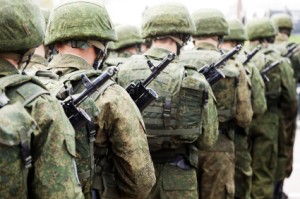OpEd News, By Martha Rosenberg
May 16, 2013
Once again the military and mainstream press are searching for all the reasons for troop suicides except for the quadrupling of drugs being prescribed that cause suicide. Before, during and after deployment, today’s military personnel are subject to a stew of drugs—antidepressants, antipsychotics and anticonvulsants—that carry clear suicide warnings.
Why? Because DOD and VA are Big Pharma’s last unregulated revenue stream and it’s going to get its money’s worth.
At Fort Hood, where 48,000 troops and their families are stationed, 6,000 soldiers were on antidepressants, and 1,400 were on antipsychotic drugs in 2009, reported USA Today. At Fort Bragg, where 50,000 are stationed, 4,994 troops were on antidepressants, and 664 were on antipsychotics in 2010, reported the Fayetteville Observer, adding that “many soldiers take more than one type of medication.”
“Completed suicide rates were approximately twice the base rate following antidepressant starts in VA clinical settings,” says psychiatrist Peter Breggin, who has testified at congressional hearings. SSRI antidepressants “can cause or worsen suicidality, aggression and other dangerous mental states.”
Between 2005 and 2009, half of all TRICARE (the military health plan) prescriptions for people between eighteen and thirty-four were for antidepressants and epilepsy drugs like Topamax. Prescriptions for suicide-linked Neurontin increased 56 percent, reports Military Times. In 2008, according to Military Times, 578,000 epilepsy pills and 89,000 antipsychotics were prescribed to deploying troops. Eighty-nine percent of troops with post traumatic stress disorder (PTSD) are given psychoactive drugs, and 34 percent are given antipsychotics—drugs with clear suicide warnings. A study of 887,859 VA hospital patients recommends “close monitoring” for suicide “after an antidepressant start.”
“At least one in six service members is on some form of psychiatric drug,” the Military Timnes site reported in 2010. And “many troops are taking more than one kind, mixing several pills in daily ‘cocktails’ for example, an antidepressant with an antipsychotic to prevent nightmares, plus an anti-epileptic to reduce headaches–despite minimal clinical research testing such combinations.”
One military insider, Dr. Elspeth Ritchie, a fan of SSRI antidepressants, blames access to loaded weapons and “dear John” letters for the suicides in an Astra-Zeneca funded video.
Right.
With similar denial, the VA’s Iraq War Clinician Guide says, “We recommend SSRIs as first line medications for PTSD pharmacotherapy in men and women with military-related PTSD,” and “Findings from subsequent large-scale trials with paroxetine [Paxil] have demonstrated that SSRI treatment is clearly effective both for men in general and for combat veterans suffering with PTSD.” Clearly, there is a different kind of “service” going on here–service to Big Pharma’s marketing plans.
Martha Rosenberg is a health reporter and commentator whose work has appeared in Consumers Digest, the Boston Globe, San Francisco Chronicle, Chicago Tribune, New Orleans Times-Picayune, Los Angeles Times, Providence Journal and Newsday.
Also read, Psychiatric Drugs & War: A Suicide Mission


